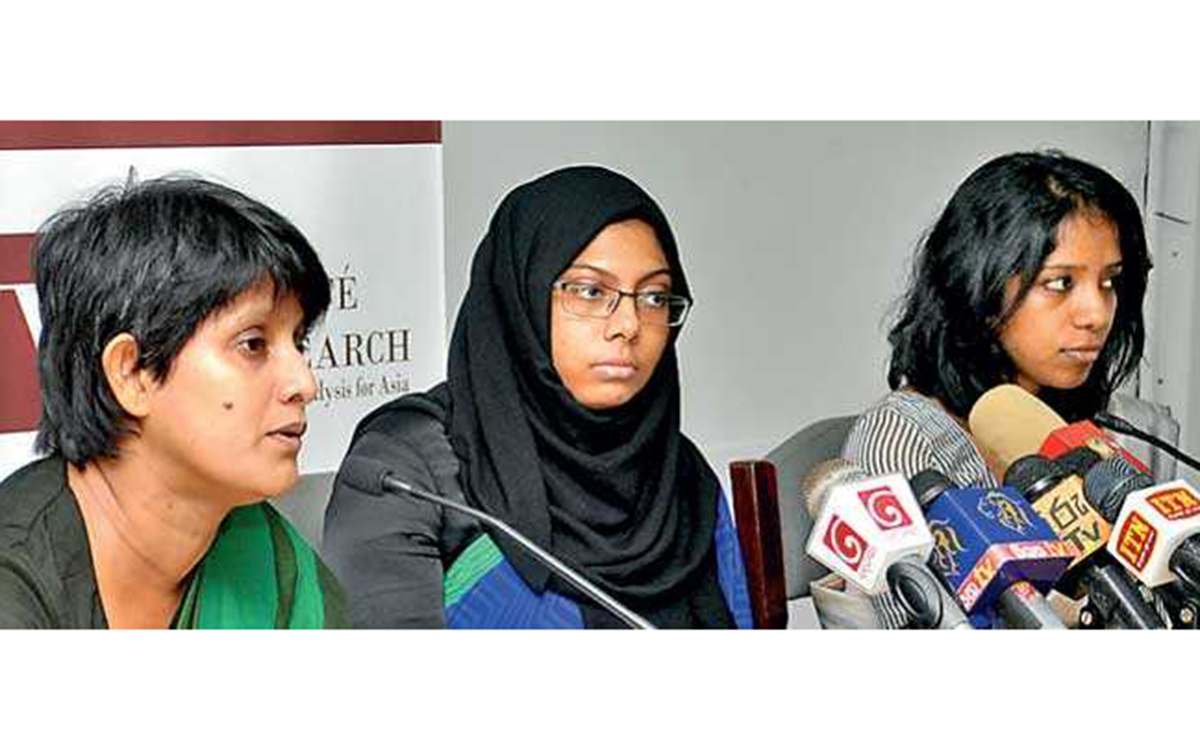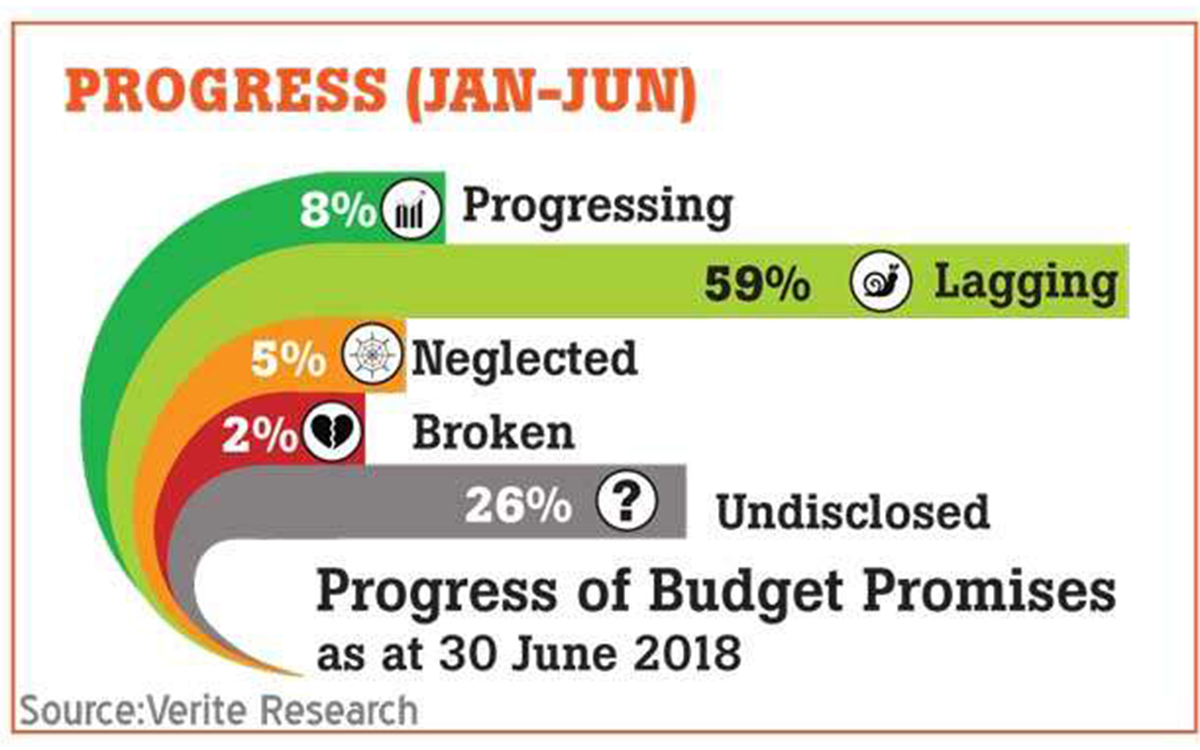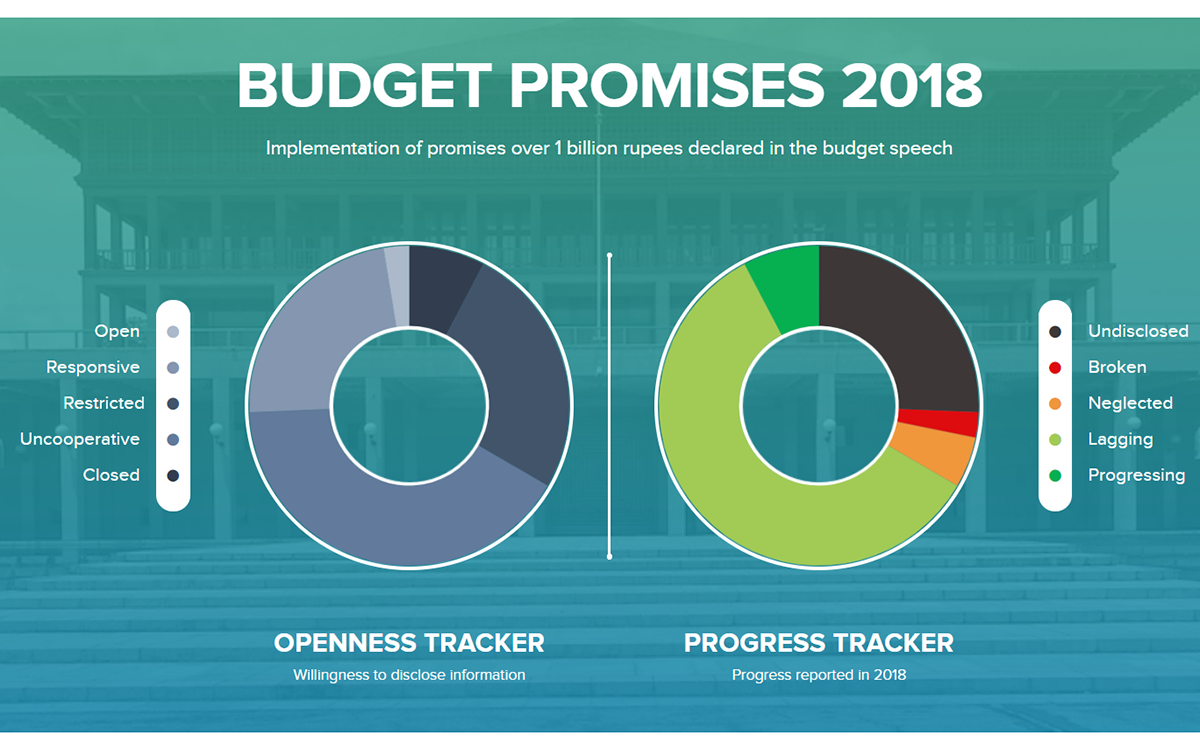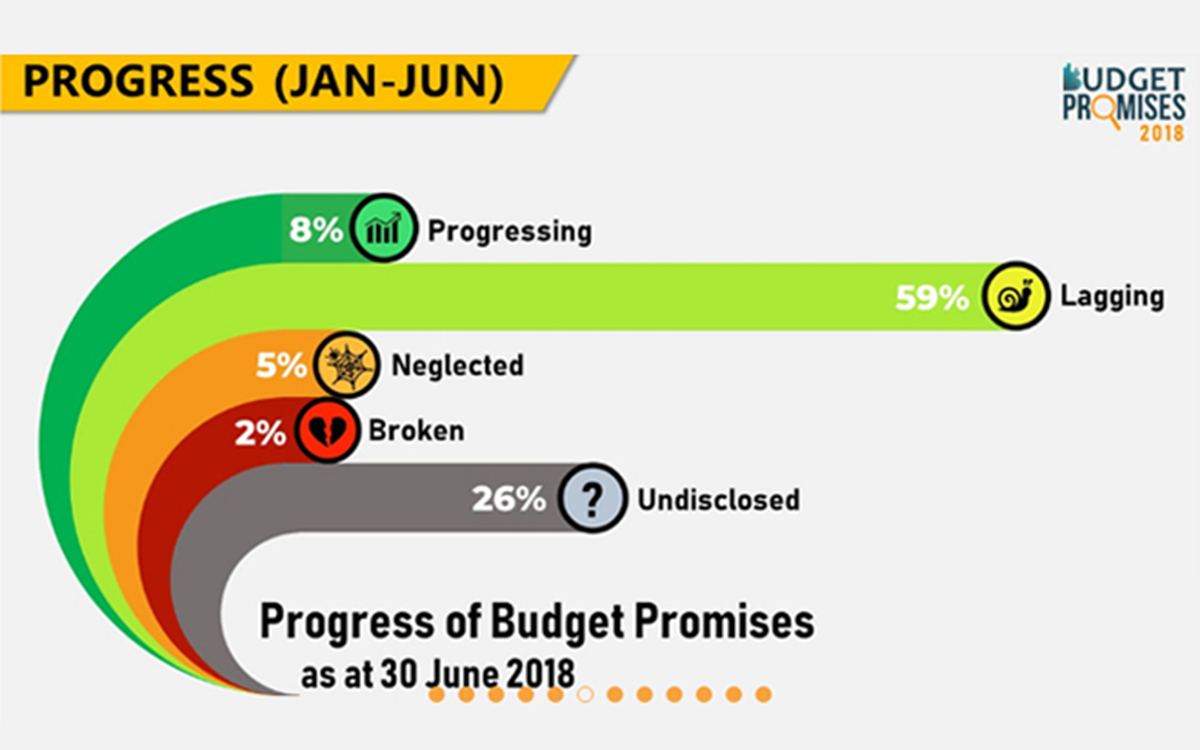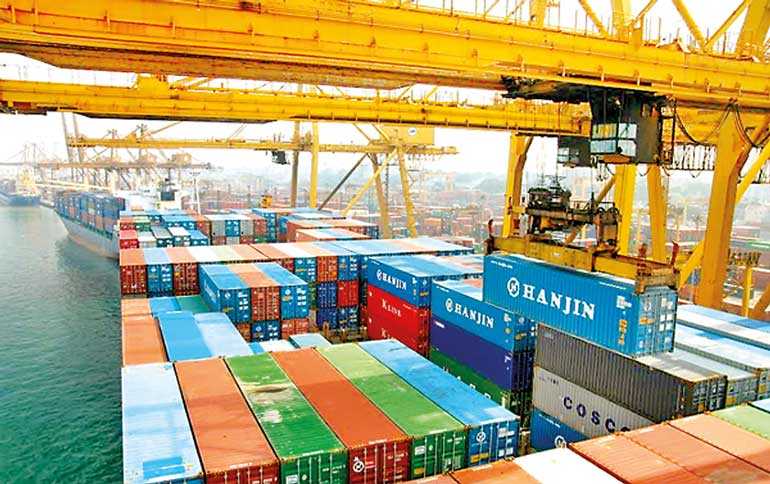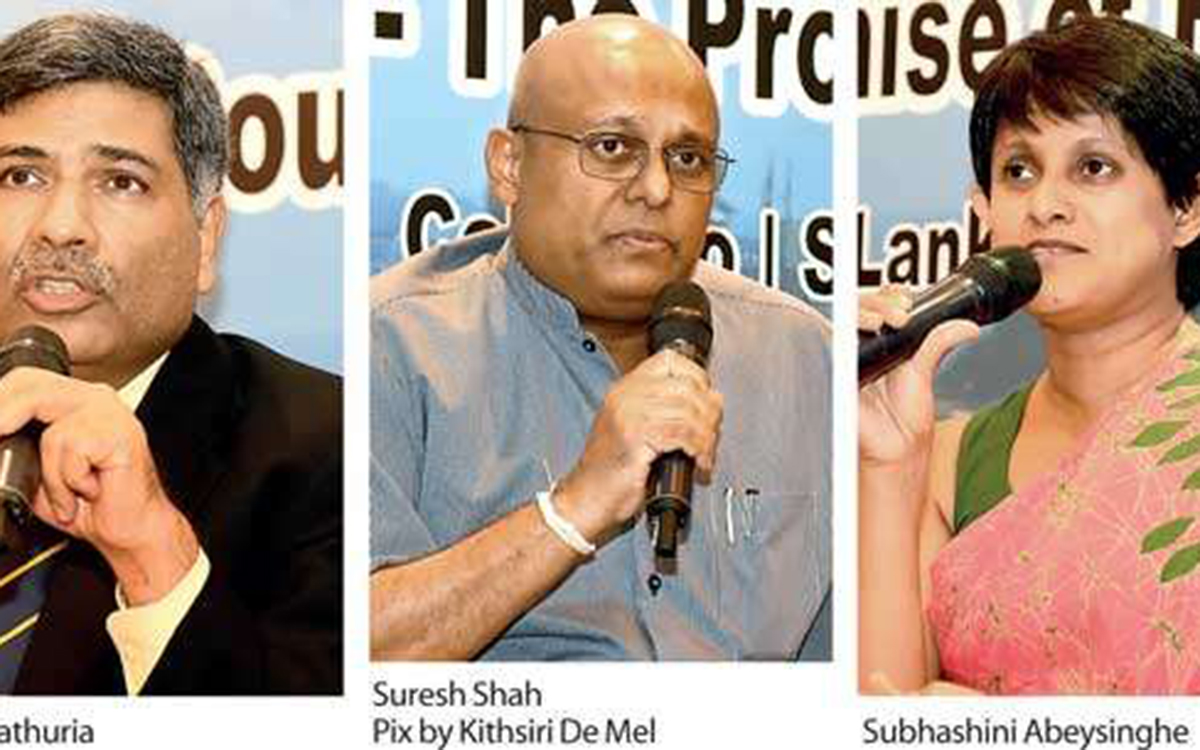Budget 2018 mired on implementation
Taken from DailyFT From left: Verite Research’s Research Director Subhashini Abeysinghe, Analyst Hasna Munas and Economic Research Team Leader Vidya Nathaniel - Pic by Ruwan Walpola Verité’s latest Budget tracker for 1H shows only 8% of 38 major proposals worth Rs. 149...
continue readingBudget promises lagging; state of ‘Implementation Unit’ unknown
Taken from Daily Mirror National Budget Department says no such unit exists Progress reports of individual ministries lacking consistency Status of 26 percent of promises remains undisclosed By Shabiya Ali Ahlam The government has yet again failed to implement the...
continue readingOnly 8-pct of Sri Lanka govt budget promises on track, study finds
Taken from EconomyNext ECONOMYNEXT – Most new spending proposals in Sri Lanka’s 2018 government budget are behind schedule in their implementation with only eight percent of promises progressing on track, the same rate as last year, a new study has...
continue readingOnly 8-pct of Sri Lanka’s 2018 budget promises progressing on track: Verité
Taken from LBO Oct 16, 2018 (LBO) – Sri Lanka’s private think tank Verité Research has found out that only 8 percent of promises announced in the 2018 budget are progressing on track through the end of the first six...
continue readingOnly 8% of budget promises are on track, says think tank
Taken from Ada Derana A private sector think-tank says that only 8% of the government’s budget promises are progressing in line with their targets and that the pace of progress is slow, at the end of the first six months...
continue readingBudget Promises: 33% Broken, Neglected or Undisclosed, Only 8% on Track
Budget Promises: Beyond Parliament is Sri Lanka’s pioneering budget monitoring platform. It tracks the government’s performance and openness on key promises made in its annual budget. The platform is motivated by two basic questions: (1) Is the government doing what...
continue readingHigh protection betrays uncompetitiveness of Sri Lankan industry
ECONOMYNEXT - Prohibitive import tariffs that protect domestic industry from competition are an indication of the inefficiency of local companies, Subhashini Abeysinghe, Research Director at think-tank Verité Research said. Higher import taxes signal higher domestic prices compared to import prices,...
continue readingSri Lanka needs to generate public support for trade reform
ECONOMYNEXT - Sri Lanka needs to convince the public about the benefits of trade so they could prod politicians to make the reforms to reduce living costs and companies more competitive, panelists at a World Bank forum said. The general...
continue readingCorrupt bureaucrats, uncompetitive local industries blocking trade liberalisation
By Nishel Fernando The largely uncompetitive local industries and corrupt bureaucrats are exploiting the public perception to delay trade liberalisation and the necessary reforms for their personal gains, as the government and academics have so far failed to engage the...
continue readingSearch
CATEGORIES
ARCHIVE
- February 2024 1
- January 2024 1
- October 2022 1
- August 2022 1
- June 2022 1
- January 2022 17
- December 2021 16
- November 2021 15
- October 2021 17
- September 2021 15
- August 2021 22
- July 2021 7
- June 2021 7
- May 2021 4
- April 2021 3
- March 2021 9
- February 2021 2
- January 2021 1
- November 2020 2
- October 2020 7
- September 2020 6
- July 2020 8
- June 2020 5
- May 2020 2
- April 2020 4
- March 2020 7
- February 2020 5
- January 2020 1
- November 2019 1
- October 2019 4
- September 2019 4
- August 2019 2
- July 2019 4
- June 2019 8
- May 2019 1
- April 2019 7
- March 2019 16
- February 2019 6
- January 2019 5
- December 2018 2
- November 2018 1
- October 2018 21
- September 2018 10
- August 2018 10
- July 2018 15
- June 2018 1
- May 2018 14
- April 2018 16
- March 2018 6
- February 2018 25
- January 2018 32
- December 2017 3
- November 2017 11
- October 2017 24
- September 2017 4
- August 2017 1
- July 2017 12
- June 2017 3
- May 2017 9
- April 2017 2
- March 2017 6
- February 2017 4
- January 2017 8
- December 2016 1
- November 2016 1
- July 2016 1
- May 2016 1
- May 2013 1
